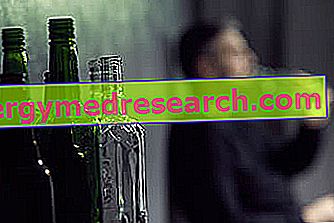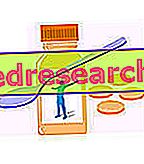
What is Synagis?
Synagis is found as a powder and solvent to form a solution for injection. It contains the active substance palivizumab.
What is Synagis used for?
Synagis is indicated for the prevention of serious lower respiratory tract infections (lungs) caused by the respiratory syncytial virus (RSV) which requires hospitalization. it is used in the following groups of children, who are at high risk of contracting the disease:
- children younger than six months born prematurely five or more weeks (with a gestational age of 35 weeks or less);
- children under the age of two who have been treated for bronchopulmonary dysplasia (altered lung tissue, usually found in premature babies) in the last six months;
- children younger than two years born with severe heart disease.
The medicine can only be obtained with a prescription.
How is Synagis used?
Synagis is given once a month during periods when a risk of RSV is expected in the community, ie from November to April in the northern hemisphere. If possible, the first dose should be given before the critical season begins. Patients normally receive a total of five injections, one per month, in the thigh muscle.
How does Synagis work?
The active substance in Synagis, palivizumab, is a monoclonal antibody. A monoclonal antibody is an antibody (a type of protein) designed to recognize and bind to a specific structure (called an antigen). Palivizumab was created to bind to a protein called fusion protein A that is found on the surface of VRS. When palivizumab binds to this protein, the virus is no longer able to penetrate cells in the body, particularly those of the lungs. This helps prevent RSV infections.
What studies have been carried out on Synagis?
The main Synagis study was carried out on 1 502 high-risk children comparing Synagis with placebo (a dummy treatment) during an RSV epidemic season. A second study was also conducted, during which Synagis was compared with placebo in 1 287 children born with heart disease. In both studies the main measure of effectiveness was the number of children who were hospitalized for RSV infection.
What benefit has Synagis shown during the studies?
Synagis was more effective than placebo in reducing RSV-related hospitalizations: during the study 5% of children treated with Synagis and 11% of children treated with placebo were admitted for RSV infection. This is equivalent to a 55% reduction. In children born with heart disease the reduction was 45%.
What is the risk associated with Synagis?
The most common side effects seen with Synagis (seen in between 1 and 10 patients in 100) are diarrhea, fever, injection site reactions (pain and inflammation at the injection site) and nervousness. For the full list of all side effects reported with Synagis, see the Package Leaflet.
Synagis should not be used in people who may be hypersensitive (allergic) to palivizumab, to any of the other ingredients or to other "humanized" monoclonal antibodies.
Why has Synagis been approved?
The Committee for Medicinal Products for Human Use (CHMP) decided that the benefits of Synagis outweigh its risks for the prevention of serious lower respiratory tract infections requiring hospitalization caused by RSV in children at high risk of disease from VRS. The Committee recommended that Synagis be given marketing authorization.
More information on Synagis
On 13 August 1999, the European Commission granted a marketing authorization for Synagis, valid throughout the European Union, to Abbott Laboratories Limited. The marketing authorization was renewed on 13 August 2004 and 13 August 2009.
The full EPAR for Synagis can be found here.
Last update of this summary: 08-2009



